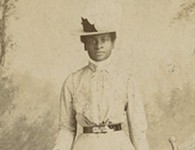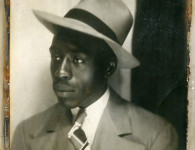Photo credits: Alabama Department of Archives and History
The Banner Mine outside Birmingham, Alabama, burst into flames on April 8, 1911, killing 128 mine employees. “Approximately 90% were negro inmates,” according to the official investigative report. The other workers in the mine were shot firers and foremen who were white convicts and free blacks.”
Alabama has risen to become the sixth biggest coal producer in the United States by 1910. Alabama’s coal output increased from 67,000 tons to 8.4 million tons between 1875 and 1900. This increase was fueled in large part by the state’s extension of convict leasing; in Birmingham, the state’s coal capital, more than 25% of miners were leased to convicts. Furthermore, more than half of all miners in the state learned their trade while doing time in prison.
State authorities rapidly discovered how to abuse Black people disproportionately via the convict leasing system. In an average year, 97 percent of county inmates in Alabama were black. Local police patrolled small-town streets, targeting Black Alabamians for fast arrest on allegations of vagrancy, gambling, intoxication, or theft as coal firms’ labor demands expanded.
These residents were subsequently tried and found guilty, condemned to 60 or 90 days of hard labor with court expenses, and transported to the mines. Because local authorities had little motivation to interfere and inmates lacked the means and capacity to demand compliance, employers regularly kept and employed offenders far beyond their planned release dates.
The conditions in the mines were appalling. Men were sometimes chained together in ankle-deep water, working 12- to 16-hour stints with no breaks and subsisting on fistfuls of rotting meat and cornmeal shoved into the rags they wore as uniforms. The convicts slept in their shackles, covered in “filth and vermin,” and the powder cans used as slop jars regularly overflowed and poured over into their beds, according to a Black former convict worker.
The owners and operators of the mines did not place a high focus on prisoner safety. Following the devastating explosion, local publications treated the killings as a comedic rather than a tragic loss of life. The victims’ identities were published with their criminal crimes, which included vagrancy, firearms offenses, bootlegging, and gambling.
“Several blacks from this district… were trapped in the Banner mine explosion. That’s a hefty price to pay for selling alcohol,” a local newspaper reported,




















No comments